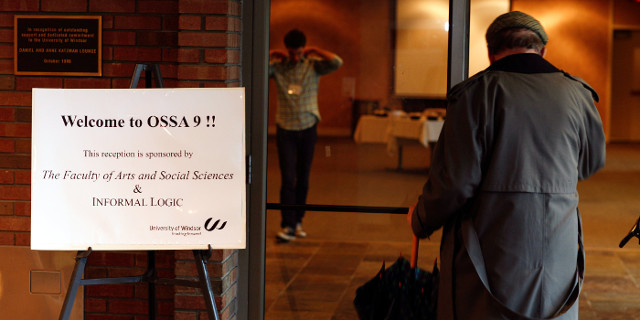
Location
University of Windsor
Document Type
Paper
Keywords
rules, function, Collingwood, creeds, existence, subjects, change, realism, constructivism, truth, history
Start Date
18-5-2011 9:00 AM
End Date
21-5-2011 5:00 PM
Abstract
In mainstream Anglo-American philosophy, the relation between cognition and community has been defined primarily in terms of the generalization of the mathematical function (Frege, Russell), especially as a model for the nature of rules (Wittgenstein and followers), which thus come to be under-stood as algorithms. This leads to the elimination of both the reflexive, synthesizing subject (for it is unnec-essary to the algorithmic decision-making procedure installed in the rule), and the intrinsic communal-historical nature of argumentation and belief-formation. Against this approach, I follow R.G. Collingwood’s hitherto unrecognized strategy in his Essay on Metaphysics (1940) and argue that the relation of cognition and community is better understood by way of the ancient and forgotten model of creedal rules of faith or trust. These will be shown to have the logical form of first person performative rules of faith or trust that generate third person declaratives or proposi-tions, and so constitute the possibility conditions for an argumentational logic of question and answer. They restore the synthetic subject, for they are not algorithms but reflexive and interpretive formulae; they are communally constituted and so historically saturated; and they reinstate an ontological theory of truth as disclosure, with coherence and comprehensiveness as its criteria. In these respects, as Collingwood saw, the creedal model provides a fresh interpretation of the historicality of argumentation and redefines the relation of cognition and community in terms of the interdependence of faith and reason.
Creative Commons License

This work is licensed under a Creative Commons Attribution 4.0 International License.
Included in
A very different kind of rule: Credal rules, argumentation and community
University of Windsor
In mainstream Anglo-American philosophy, the relation between cognition and community has been defined primarily in terms of the generalization of the mathematical function (Frege, Russell), especially as a model for the nature of rules (Wittgenstein and followers), which thus come to be under-stood as algorithms. This leads to the elimination of both the reflexive, synthesizing subject (for it is unnec-essary to the algorithmic decision-making procedure installed in the rule), and the intrinsic communal-historical nature of argumentation and belief-formation. Against this approach, I follow R.G. Collingwood’s hitherto unrecognized strategy in his Essay on Metaphysics (1940) and argue that the relation of cognition and community is better understood by way of the ancient and forgotten model of creedal rules of faith or trust. These will be shown to have the logical form of first person performative rules of faith or trust that generate third person declaratives or proposi-tions, and so constitute the possibility conditions for an argumentational logic of question and answer. They restore the synthetic subject, for they are not algorithms but reflexive and interpretive formulae; they are communally constituted and so historically saturated; and they reinstate an ontological theory of truth as disclosure, with coherence and comprehensiveness as its criteria. In these respects, as Collingwood saw, the creedal model provides a fresh interpretation of the historicality of argumentation and redefines the relation of cognition and community in terms of the interdependence of faith and reason.
